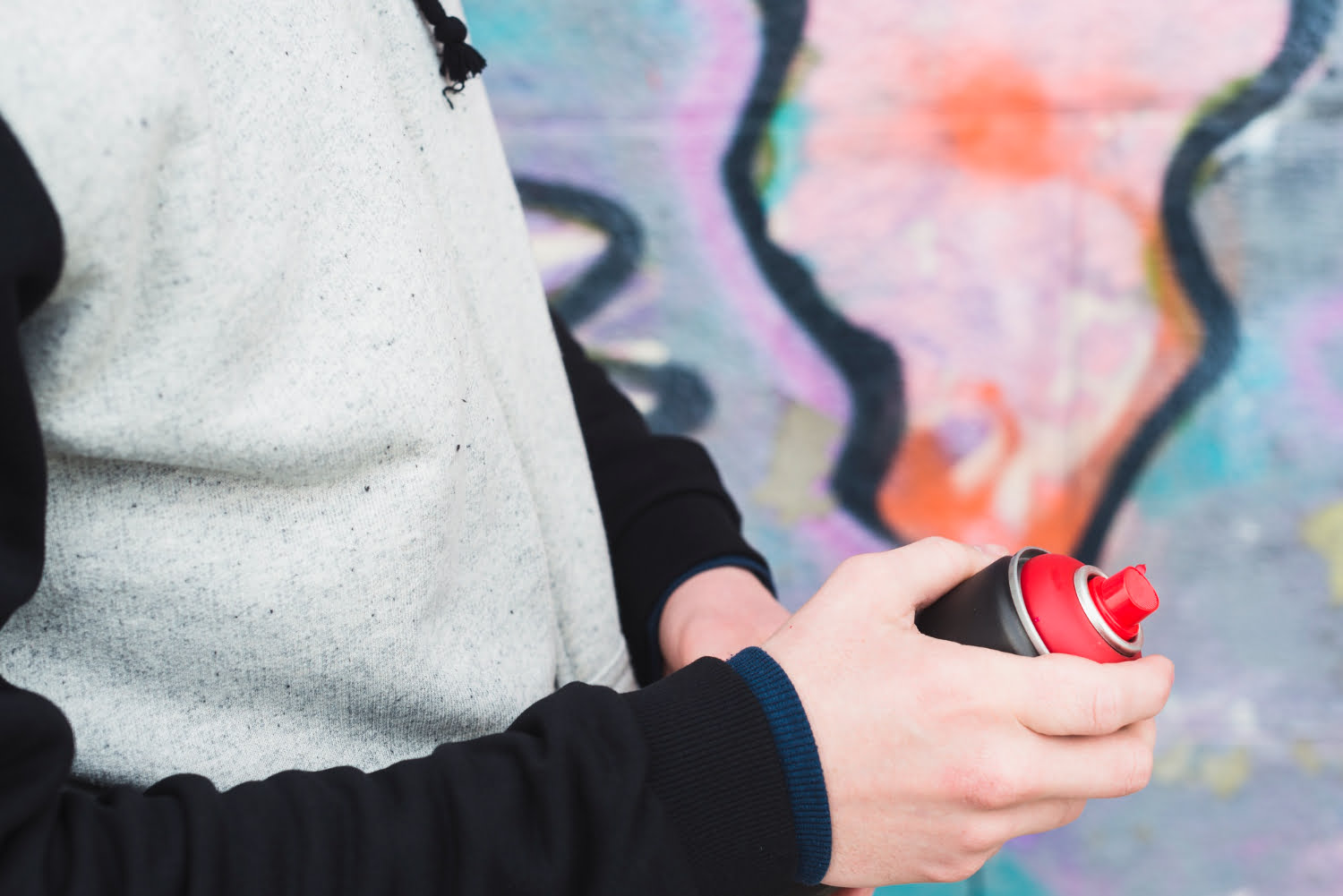How to get spray paint out of clothes? Spray paint mishaps can be disheartening, especially when your favorite clothes are involved. Whether you’re an avid DIY enthusiast or accidentally found yourself in the line of paint, fear not. This comprehensive guide will take you through a detailed journey on how to effectively remove spray paint from clothes, ensuring your wardrobe stays vibrant and stain-free.
Introduction
Brief Overview of the Problem
Spray paint stains, if not dealt with promptly, can become a permanent eyesore on your clothes. The pigments in spray paint penetrate fabric fibers quickly, making rapid action essential for successful removal.
Importance of Quick Action
Acting swiftly is crucial when it comes to spray paint stains. The longer the paint sits, the more challenging it becomes to eliminate. A quick response can significantly increase the chances of successful stain removal.
Understanding Spray Paint Types
Different Types of Spray Paint
Spray paints come in two main types: water-based and oil-based. Understanding the type of paint involved is crucial for selecting the right removal method.
Impact on Fabric
Water-based paints are generally easier to remove than their oil-based counterparts. However, both types can leave lasting marks if not addressed promptly. Different fabrics may react differently to these paints, influencing the removal strategy.
Immediate Steps to Take
Quick Action is Key
How to get spray paint out of clothes: The moment you notice a spray paint stain, swift action is your best ally. Grab a clean cloth or paper towel and blot the stain, absorbing as much paint as possible without spreading it further.
Blotting vs. Scrubbing
Avoid aggressive scrubbing, as it may spread the paint. Instead, use a gentle blotting motion to lift the paint from the fabric. This initial step sets the foundation for successful stain removal.
Essential Supplies
Basic Household Items
Gather household items like rubbing alcohol, acetone, dish soap, and a clean cloth. These items form the core of your DIY stain removal toolkit.
Commercial Stain Removers
Explore commercial stain removers designed specifically for paint removal. They are readily available at supermarkets and hardware stores, offering effective solutions for stubborn stains.
Preparing the Stained Area
Protecting Surrounding Fabric
Before attempting to remove the stain, isolate the affected area to prevent the paint from spreading to other parts of the garment. Use tape or cover nearby fabric with a protective barrier.
Testing a Small Area
Perform a patch test on a small, inconspicuous area of the fabric to ensure that your chosen removal method won’t cause damage. This precaution is especially crucial for delicate fabrics.
Removing Water-Based Spray Paint
Using Alcohol or Acetone
For water-based paints, moisten a clean cloth with rubbing alcohol or acetone. Gently dab the stain, allowing the solvent to break down the paint. Continue until the stain is visibly reduced.
Rinsing and Drying
After treating the stain, rinse the fabric thoroughly with cold water. Allow the garment to air-dry, checking for any remaining traces of paint. Repeat the process if necessary.
Tackling Oil-Based Spray Paint
Applying Dish Soap or Detergent
How to get spray paint out of clothes: Oil-based paint requires a different approach. Apply a small amount of dish soap or laundry detergent directly to the stain. These agents help break down the oil in the paint.
Gentle Scrubbing Technique
Gently scrub the stained area with a soft brush or an old toothbrush. Avoid excessive force to prevent damaging the fabric. Rinse and repeat until the stain diminishes, ensuring not to leave any soap residue.
Dealing with Stubborn Stains
Repeated Applications
Stubborn stains may require multiple applications of the chosen removal method. Be patient and persistent, allowing time for the solvent or detergent to work its magic.
Seeking Professional Help
If all DIY efforts fail, consider seeking professional assistance from a dry cleaner or stain removal expert. They have the expertise and specialized tools to tackle even the most stubborn stains.
Post-Stain Care
Washing the Entire Garment
After successfully removing the stain, wash the entire garment according to its care instructions. This ensures uniform cleanliness and prevents any lingering odors.
Checking for Residue
Inspect the fabric for any residue or discoloration. If residue persists, repeat the cleaning process or consult a professional for further advice.
DIY vs. Professional Cleaning
Pros and Cons of DIY Methods
While DIY methods are cost-effective and convenient, they may not be suitable for all fabrics or paint types. Consider the pros and cons before deciding on the best approach for your specific situation.
When to Consult Professionals
For valuable or delicate garments, or if DIY methods prove ineffective, seeking professional cleaning services is a wise choice. Professional cleaners have the expertise to handle a wide range of fabrics and stains effectively.
Preventive Measures – How to Get Spray Paint Out of Clothes
Wearing Protective Gear
How to get spray paint out of clothes: Prevention is the best strategy when working with spray paint. Wear protective clothing, such as an old apron or coveralls, to minimize the risk of stains on your regular attire.
Choosing Clothing Wisely
Opt for old or disposable clothing when engaging in activities that involve spray painting. This simple precaution can save your favorite pieces from unintentional damage.
Tips for Specific Fabrics
Cotton, Polyester, and Blends
Cotton and polyester are generally more forgiving when it comes to stain removal. Follow the general guidelines, but exercise caution with blends, as they may require a more tailored approach.
Delicate Fabrics like Silk and Wool
Handle delicate fabrics with extra care. Consult care labels and, if in doubt, seek professional advice to avoid damaging sensitive materials.
Environmental Impact of Spray Paint Removal
Eco-Friendly Cleaning Alternatives
Consider environmentally friendly alternatives when choosing stain removers. Natural solvents like vinegar or lemon juice can be effective while minimizing your ecological footprint.
Responsible Disposal
Dispose of used cleaning materials responsibly to minimize environmental impact. Recycle containers and follow local guidelines for hazardous waste disposal.
Common Mistakes to Avoid
Using Harsh Chemicals
Avoid using harsh chemicals, such as bleach, that may damage fabric. Stick to gentle cleaning solutions to preserve the integrity of your clothing.
Delaying Stain Treatment
The sooner you address the stain, the higher the likelihood of successful removal. Delaying treatment may result in a permanent mark, so act promptly to save your garments.
Conclusion
Summary of Key Points
In conclusion, dealing with spray paint stains requires a combination of quick action, understanding the paint type, and using appropriate removal methods tailored to the fabric.
Encouragement for Readers
Don’t be discouraged by a spray paint mishap. With the right knowledge and a bit of patience, you can salvage your favorite garments and keep your wardrobe looking fresh.
Frequently Asked Questions
Q: Can I use nail polish remover to remove spray paint from clothes?
A: While nail polish remover contains acetone, it’s advisable to use pure acetone for better results. Nail polish removers may contain additional ingredients that can affect the fabric.
Q: Are commercial stain removers safe for all fabrics?
A: Read the product label and follow instructions. Some commercial stain removers may contain harsh chemicals, so check compatibility with your fabric.
Q: Can I use the same method for old spray paint stains?
A: Yes, though older stains may require additional effort and repeated applications. Be persistent and patient in treating old stains.
Q: Is it possible to remove spray paint from silk without damage?
A: It’s challenging but possible. Consult professionals or follow fabric-specific guidelines to ensure delicate fabrics like silk remain intact.
Q: Are there eco-friendly alternatives for removing spray paint?
A: Yes, consider using natural solvents like vinegar or lemon juice as eco-friendly alternatives. These options are effective and environmentally conscious.
Investigate Additional Writings: How to Fold a Shirt for Travel



